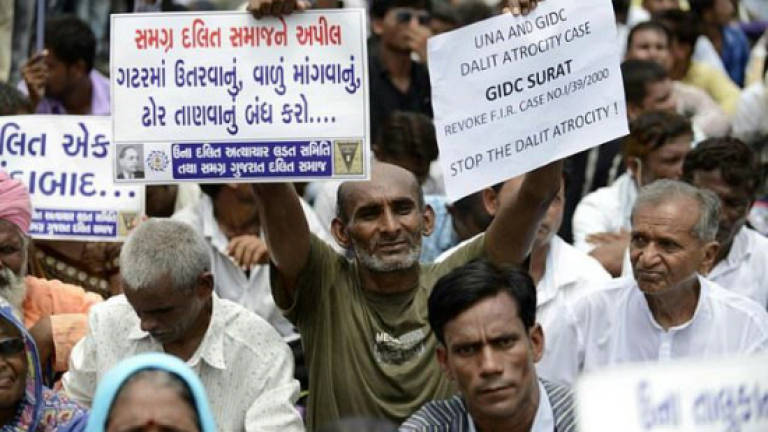India's ruling party picks Dalit as presidential candidate

NEW DELHI: India's ruling party on Monday named a lawyer from the lowest Dalit caste as its candidate for president, a move seen as an attempt to reach out to the marginalised community.
Ram Nath Kovind, 71, is likely to take up the largely ceremonial post when the term of Pranab Mukherjee ends next month, becoming the second Dalit to be India's head of state.
The president is voted in by an electoral college comprised of federal and state lawmakers, and the ruling Bharatiya Janata Party (BJP) is thought to have the support it needs to push its candidate through.
"Ram Nath Kovind has always fought for the betterment of the Dalits and other backward castes," BJP chief Amit Shah said at a press conference to announce the party's candidate.
"The BJP ... hopes that a person born in a poor family of low-caste Dalit community will be a consensus candidate for the president's post."
Kovind's nomination follows huge protests last year by members of the historically marginalised Dalit community, who make up around 17% of India's population.
The protests broke out after four young Dalits were stripped naked and publicly flogged after being falsely accused of killing a cow, an animal Hindus consider sacred.
The outrage was compounded by the savage beating of a pregnant woman and her husband after they refused to allow higher-caste men to graze cattle on their land.
The BJP has traditionally enjoyed the support of upper-caste Hindus but has been wooing low-caste voters to broaden its nationwide appeal.
Kovind, a two-time parliamentarian and current governor of the eastern state of Bihar, is a lifelong supporter of the Hindu nationalist BJP and a relative unknown in Indian politics.
He has also headed groups that work to improve the conditions of Dalits, previously known as untouchables, who lie at the bottom of India's deeply entrenched social hierarchy.
If elected, he will be India's second Dalit president after K R Narayanan, who served from 1997 to 2002.
Prime Minister Narendra Modi tweeted that Kovind would "make an exceptional president" and "continue to be a strong voice for the poor, downtrodden and marginalised".
The opposition, led by the Congress Party, will reportedly meet on Thursday to decide whether to name a separate candidate or support Kovind.
But political observers said it could be difficult for rival parties to oppose a Dalit candidate.
"Modi and Shah have shrewdly ensured that they cause a strategic split in the opposition camp while getting an ideological fellow traveller into Rashtrapati Bhavan," wrote journalist Swati Chaturvedi on the NDTV news website, referring to the president's official residence.
"If elected, Kovind will ensure that Modi has a friend in Rashtrapati Bhavan."
India's prime minister wields most of the executive power, but the president can send back some parliamentary bills for reconsideration and also plays a guiding role in the process of forming governments. — AFP